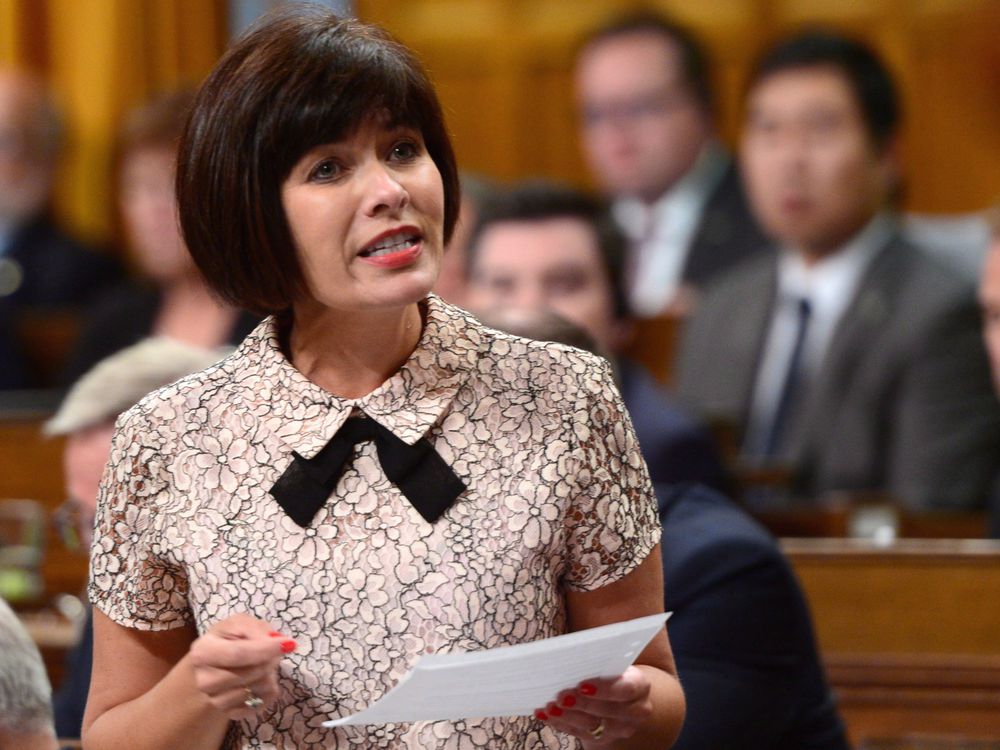The federal Liberals are refusing a Manitoba MP’s request to divulge Ottawa’s cost estimates for regulating and policing recreational marijuana, saying they’re still working out the details.
“The government needs to be more upfront and tell people what it’s going to cost,” said Conservative MP Larry Maguire.
On June 12, Maguire asked the parliamentary budget officer to probe how much money federal departments believe they’ll need to enforce new laws that legalize pot, and to track associated public-health impacts.
In an Aug. 1 letter, the budget watchdog told Maguire he was facing stiff resistance from the Justice and Health Departments, as well as Public Safety Canada. All three confirmed they have cost estimates on hand, but won’t release them.
“All the information should be made public about it, to inform the parliamentary debate, which they are having this week on those bills,” PBO Jean-Denis Fréchette said in a Monday interview.
But the government says it can’t provide the numbers — because it’s still working on its pot plan.
“There’s so many different iterations of things at play,” said Yves Comeau, spokesman for Health Minister Ginette Petitpas Taylor. “It would not be productive, in my view, to share and make those public as they go. It could lead the debate to different discussions.”
Comeau said the feds are working with the provinces to understand their plans, and tailoring cost estimates to what they hear.
He acknowledged MPs are already debating the legislation in committee this week, but said they could easily ask the officials testifying for the latest estimates.
“That I think is the right process. But us willingly going out to issue any or all estimates that we’re getting is not something that we’d do.”
Yet Maguire said that shows the government doesn’t have clear plans ahead of its July 1 legalization deadline.
This summer, Maguire held five public meetings in his Brandon-Souris constituency about the issue. He said the roughly 250 attendees were split on whether to legalize recreational cannabis, but almost everyone wondered how much municipal and provincial governments will have to spend.
“The clear consensus… was that the government didn’t have their homework done on this and needed another extension to make sure it was before it went ahead. And that was the one clear thing from everyone involved,” he said.
Ottawa did unveil some detail Friday.
The Liberals plans to spend $274 million on law enforcement over the next five years. Of that money, $113.5 million would go to countering organized crime and foreign marijuana. The other $161 million would go to drug-screening training and devices for front-line officers, as well as research public awareness campaigns.
Yet it’s unclear whether bureaucrats tallied that amount as the appropriate amount of funding to keep Canada’s streets safe, because the Liberals won’t release the data.
“It still doesn’t answer the question of what does it cost,” Maguire said. “Is this the full amount of training, or will it be offloaded to municipalities?”
Just $81 million of Friday’s announced funding would be divvied up by all 13 provinces and territories over the next five years, and Public Safety Canada won’t yet say how much each province is getting.
Fréchette said it’s clear provinces will have to bear most of the health and policing costs, which remain unclear.
Meanwhile, Maguire is particularly concerned about the reason the Liberals won’t make their cost estimates public.
The departments told the PBO the estimates fall under cabinet confidence. Also known as Privy Council confidence, the term describes data or opinions that ministers use to frankly deliberate policy before making a cohesive decision as a government.
Such information is exempted from public-disclosure rules, with the Supreme Court in 2002 saying the secrecy is integral to letting bureaucrats give accurate information that may contradict government policy.
Fréchette said it’s a common response; one he deems an excuse.
“Very often they will say it’s cabinet confidence; it’s like they don’t know what else to say,” said Fréchette, who is still reaching out to the departments. “I just want the data; I don’t want the ‘who said what’ in a cabinet meeting.”
He said Maguire’s standoff has echoes of a 2012 case under the former Conservative government.
The Tories has cited Cabinet confidence in denying Fréchette’s predecessor the data he needed to calculate the impact of budget cuts on services and programs.
The next year, the PBO tried suing the government, but Federal Court dismissed the suit on a technicality, saying the PBO would have to first complain to various parliamentary institutions.
In February 2016, the Liberal government released the data in question, and lamented the previous Harper government’s secrecy.
“They refused to provide to Parliament, to the parliamentary budget officer, to Canadians very important information about their fiscal plans,” Treasury Board president Scott Brison said at the time.
Maguire, who was elected in a 2013 byelection, said that now smacks of hypocrisy.
He noted Prime Minister Justin Trudeau’s assignment letters to each of his ministers urges them to be transparent with the public. “They certainly have not been, and we’ve seen that in a number of cases.”
But Comeau said there’s no contradiction in keeping information private when multiple models are still on the table. He said the 2012 case involved figures on decisions that were already made, not those being deliberated.
“We’re in the process of evaluation the best option that is both the most effective from a public-health point of view, and most cognizant of costs.”
credit:420intel.com





